In Japan’s IT industry, the COVID-19 pandemic has accelerated the rapid adoption of “hybrid work” combining remote work and office attendance, creating an increasingly comfortable working environment for foreign IT engineers.
With a projected shortage of up to 800,000 IT professionals by 2030, demand for skilled foreign engineers is expanding rapidly.
This article provides a detailed overview of 7 companies that have implemented foreign-friendly hybrid work policies and reveals the secrets to successful career transitions in Japan.
- You’ll discover 7 Japanese companies with excellent hybrid work policies for foreign IT engineers.
- You’ll learn how to find and secure hybrid work positions in Japan’s competitive IT market.
- You’ll understand how hybrid work solves language barriers and cultural adaptation challenges.
1. What Foreign IT Engineers Need to Know About Japan’s Hybrid Work Landscape

Japan’s IT industry has undergone significant transformation since the pandemic, with hybrid work becoming established at many companies today.
This shift represents a particularly significant turning point for foreign engineers, dramatically improving their work experience in Japan.
Rapid Adoption of Hybrid Work in Japan’s IT Industry
According to a February 2024 survey by the Tokyo Metropolitan Government, 43.4% of companies in Tokyo maintain remote work implementation, with 40.1% of companies implementing remote work three or more days per week.
A April 2024 survey by Nikkei BP Research Institute found that 39.8% of people work remotely three or more days per week, marking an upturn after two years of decline.
This indicates that both companies and employees understand the value of hybrid work and have entered a new phase of working arrangements.
Japan’s current hybrid work has entered a “third phase” where individuals can choose the optimal workplace based on job requirements and personal circumstances, significantly improving work conditions for foreign engineers.
References: Tokyo Metropolitan Government Official Website: Telework Implementation Rate
Benefits and Opportunities for Foreign Engineers
Japan’s domestic IT workforce is predicted to face a shortage of up to 800,000 professionals by 2030, leading to increasing demand for foreign engineers year by year.
Benefits from Hybrid Work
- Language Support: Ability to utilize translation tools while working, leveraging time zone differences with home countries
- Skills-Based Evaluation: Appropriate evaluation environments based on results
- Enhanced Value of Diversity: New perspectives and ideas contribute to organizational revitalization
Major Shift from Traditional Japanese Corporate Culture
There’s been a transition from the traditional “office-first” approach to “results-focused” work.
Japanese corporate culture has traditionally emphasized “office attendance as standard” which often posed adaptation challenges for foreign engineers. However, the spread of hybrid work has significantly changed this situation.
Shift to Results-Oriented Approach
The focus has shifted from the traditional “taking time to be thorough” to “efficiently producing results” The culture now emphasizes outcomes over workplace location.
Expanded Individual Autonomy
The environment has changed from uniform management to allowing individuals to choose their work style based on personal judgment. This aligns with the autonomy-focused values of foreign engineers.
Alignment with Global Standards
Recognizing that many employees wish to continue remote work, Japanese companies now understand the necessity of adapting to global work styles.
These changes make long-term career development at Japanese companies more realistic for foreign IT engineers, creating an environment where technical skills and results are properly evaluated.
2. 7 Companies with Foreign-Friendly Hybrid Work Policies

The following seven companies provide ideal hybrid work environments for foreign IT engineers.
Each has built unique approaches that emphasize diversity and establish corporate cultures that fairly evaluate technical capabilities.
Microsoft Japan: Diversity-Focused Flexible Work Style

Key Features of the System
- No mandated office attendance days, complete freedom in work style
- Individual choice of workplace and hours
- Particularly low office attendance rate among Microsoft subsidiaries worldwide
For foreign engineers facing language barriers and cultural adaptation challenges, this high degree of flexibility provides significant benefits.
The company culture respects individual judgment, as evidenced by foreign employees who voluntarily adjust their office attendance to strengthen communication after joining mid-career.
IBM Japan: Global Standard Flexible System
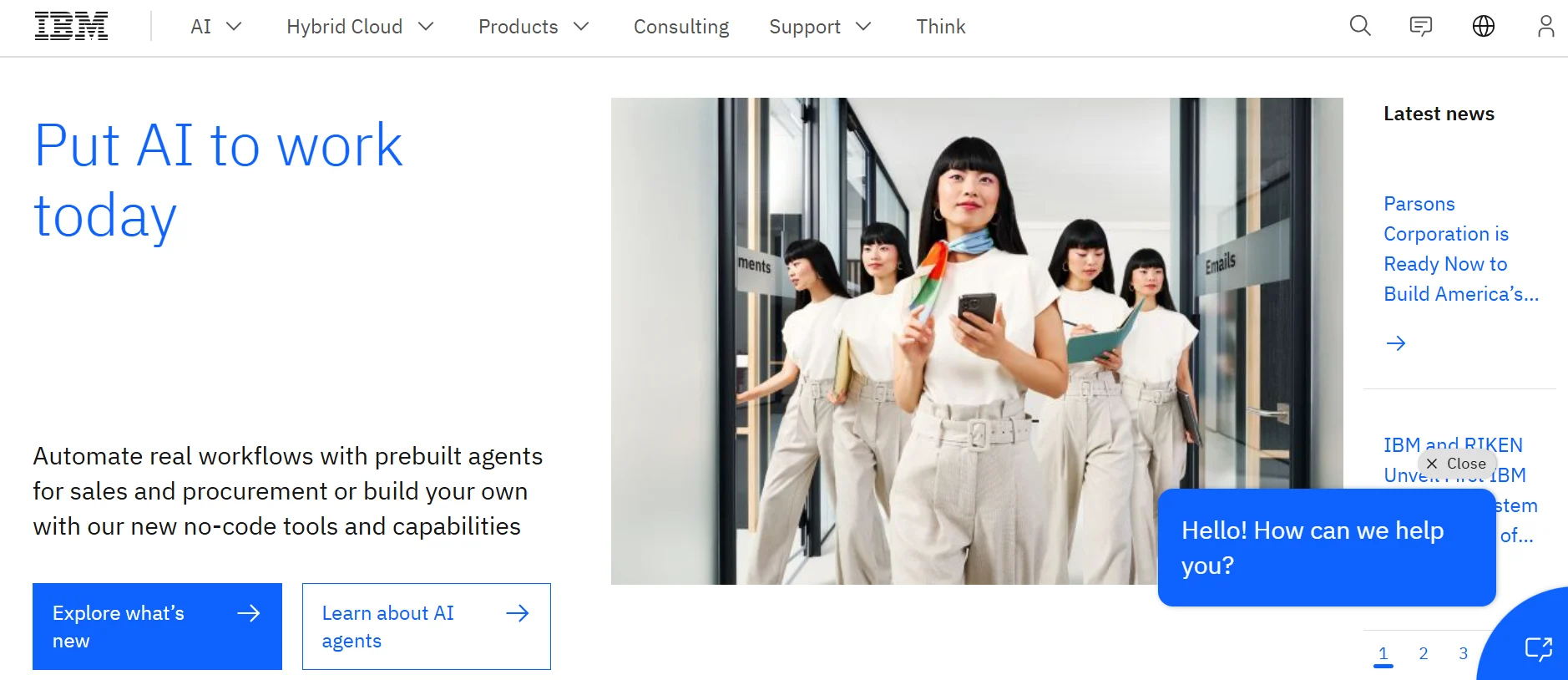
Innovative Office Strategy
- Free use of three locations: Toranomon headquarters, Hakozaki business site, and Marunouchi Eiraku Building
- Satellite offices in Shinjuku, Shibuya, Shinagawa, and other locations
- Contracted hourly rental offices (remote workspaces)
The “system for choosing the most productive and results-oriented workplace” allows free selection of work locations based on job content and project phases.
This creates an ideal environment for foreign engineers who want to leverage time zone differences with their home countries.
Fujitsu Corporation: Hybrid Strategy from a Company Actively Hiring Foreign Talent
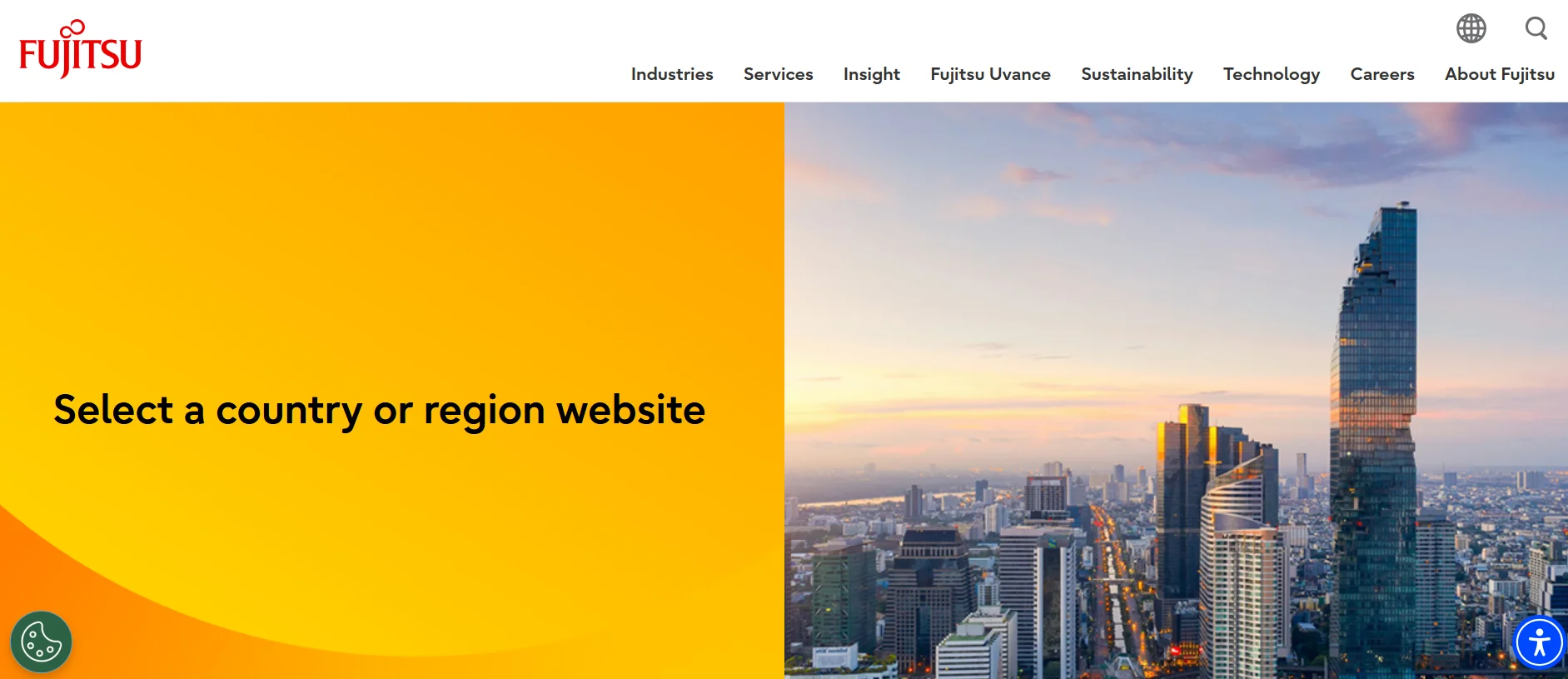
Balanced System Design
- Basic requirement of one office day per week, with home office options based on work situation and personal circumstances
- Approximately 40% office attendance rate as of October 2023
- R&D Center permits bicycle and motorcycle commuting even when using specialized equipment
The company achieves flexible work arrangements even at manufacturing sites, maintaining balanced operations that consider the health and safety of foreign employees.
HP Japan: Work Style Emphasizing International Team Collaboration

Evidence-Based System Evolution
- 38% of employees work remotely three or more days per week (2024 survey)
- Zero employees working completely from the office
- Employee engagement scores increased by 23 points over five years
Electronic signature systems introduced in 2020 enable foreign engineers to process contracts without office visits. Free address systems and seat reservation systems ensure efficient office utilization.
Rakuten Group: Remote Work Utilization by an English-First Company
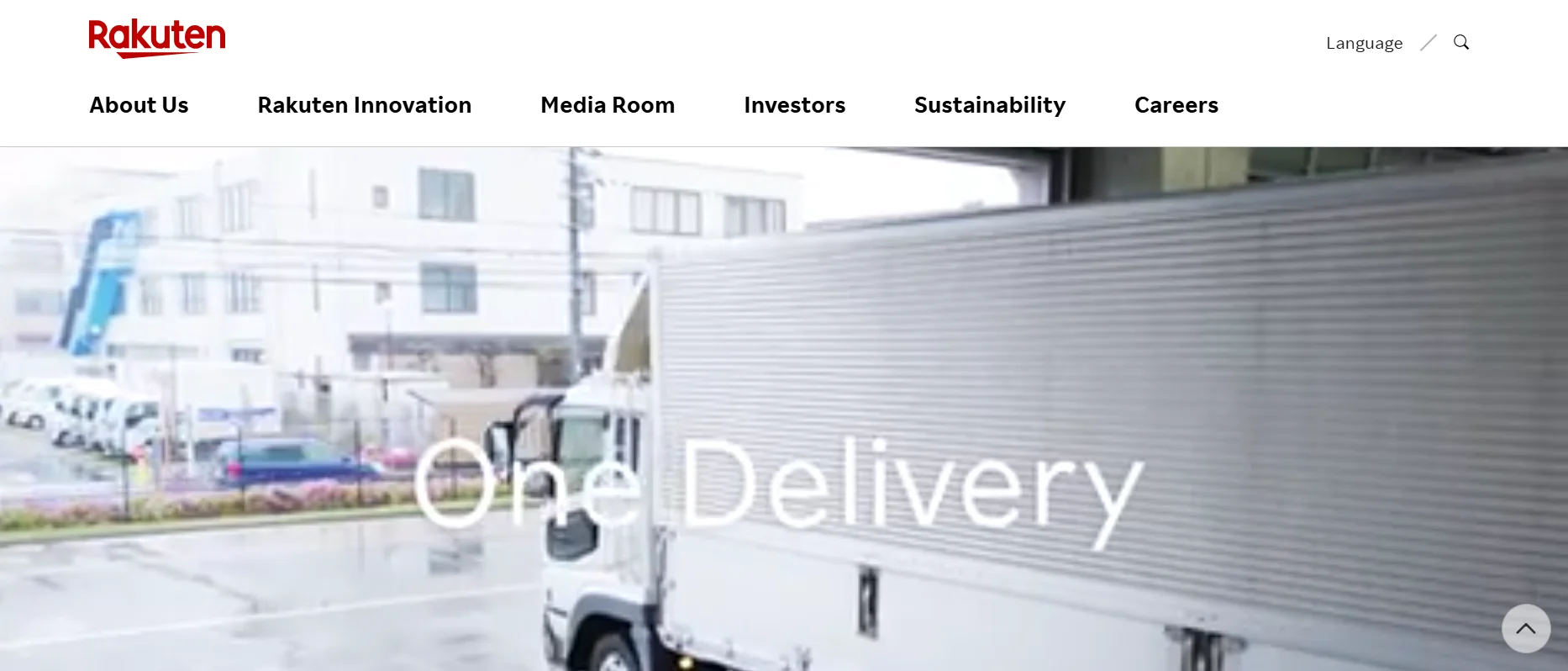
Optimal Environment for Foreign Engineers
- Approximately 2,400 foreign employees (24%) out of 10,000 total employees
- 53.8% of engineers are foreign nationals
- Employees from over 70 countries
Since implementing English as the official language in 2012, the average TOEIC score of Rakuten employees has reached 830 points. As a Japanese company with the lowest language barriers, it provides an ideal workplace environment for foreign engineers.
Mercari: Flexible System from a Diversity-Promoting Company
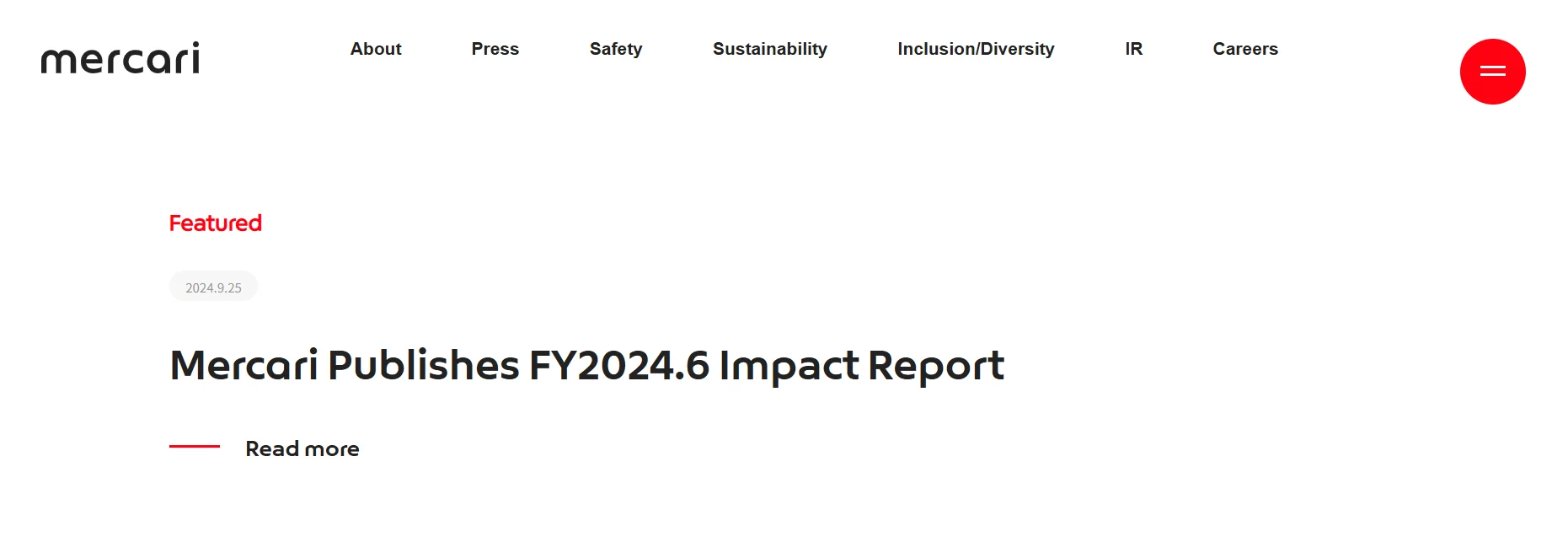
Innovative Diversity Promotion
- 25.7% of all employees, 53.8% of engineers are foreign nationals
- 88% of new graduate engineers in 2018 were foreign nationals
- Multinational environment with employees from 40 countries
The company has established a dedicated support team called “GOT” for foreign employees, providing interpretation and translation services.
The culture eliminates the need to “read the atmosphere” and encourages gentle communication, creating a comfortable working environment for foreign engineers.
Cybozu Corporation: Corporate Culture that Maximizes Consideration for Individual Circumstances
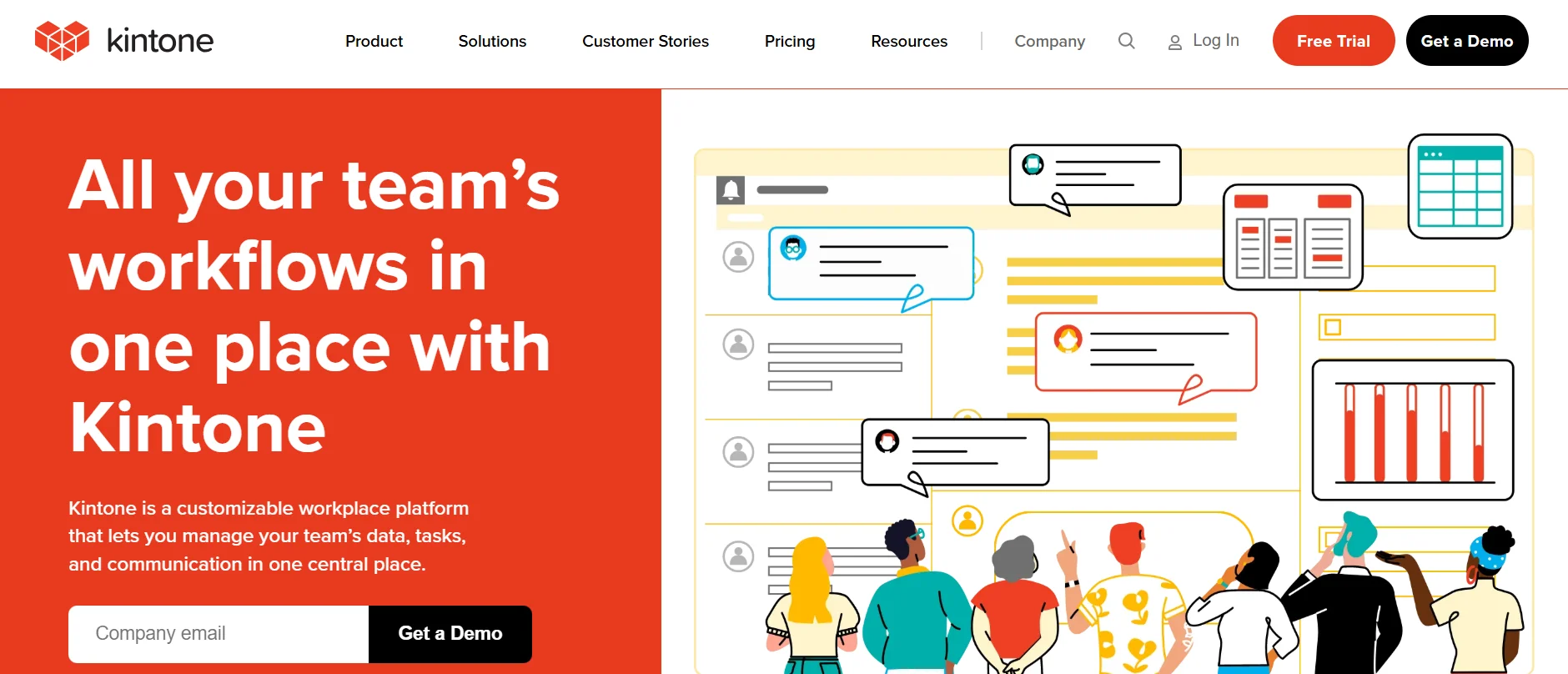
Individual-Focused System Design
- Corporate philosophy of “100 people, 100 work styles” put into practice
- Flexible work style choices based on job content and personal circumstances
- Knowledge accumulation through operating specialized hybrid work media
The environment allows employees to proactively choose their work styles, enabling foreign engineers to secure time with family in their home countries and accommodate cultural differences.
The teamwork-focused corporate culture creates an environment where members from diverse backgrounds can collaborate effectively.
■日本でエンジニアとしてキャリアアップしたい方へ
海外エンジニア転職支援サービス『 Bloomtech Career 』にご相談ください。「英語OK」「ビザサポートあり」「高年収企業」など、外国人エンジニア向けの求人を多数掲載。専任のキャリアアドバイザーが、あなたのスキル・希望に合った最適な日本企業をご紹介します。
▼簡単・無料!30秒で登録完了!まずはお気軽にご連絡ください!
Bloomtech Careerに無料相談してみる
3. Benefits Foreign Engineers Gain from Hybrid Work

Hybrid work significantly improves challenges that were difficult to resolve with traditional work arrangements for foreign IT engineers.
The following key benefits enable an ideal work style that leverages technical skills while maintaining cultural identity.
Easier Time Management with Family and Friends in Home Countries
Efficient Communication Using Time Zone Differences
By utilizing remote work days, engineers can secure communication time with family and friends in their home countries.
Time zone advantages include 14 hours with the US East Coast, 8 hours with Europe, and 3.5 hours with India, making regular contact easier.
Some foreign engineers practice starting their day with morning video calls with family in their home countries, then beginning their work in Japan.
Enhanced Emergency Response Capability
When emergencies arise in home countries, such as family illness or important events, remote work allows engineers to support their families while considering time differences and continue their work in Japan simultaneously.
Reduced Japanese Communication Burden
Language Support in Remote Work Environments
When working from home or satellite offices, engineers can freely utilize AI tools like Google Translate, DeepL, and ChatGPT, enabling more accurate and natural Japanese communication.
Improved Understanding Through Increased Written Communication
Increased written communication through Slack, Teams, and email provides the following benefits:
- Time to understand content and prepare appropriate responses
- Ability to review important information multiple times, preventing oversights
- Learning natural Japanese from Japanese colleagues’ written expressions
Efficient Work Execution Leveraging International Time Differences
Optimized Collaboration with Global Development Teams
Real-time collaboration with overseas teams becomes easier. In joint development with Silicon Valley teams, engineers can conduct code reviews and design discussions during Japanese evening hours while focusing on development work during Japanese daytime hours, creating efficient workflows.
24-Hour Development Cycle Implementation
By leveraging time differences, code worked on in Japan can be handed over to overseas teams and received the next morning with progress completed, enabling continuous development flow.
Gradual Cultural Adaptation While Understanding Cultural Differences
Increased Observational Learning Opportunities
Office days provide direct observation of Japanese colleagues’ work styles and communication methods, while remote work days offer time to digest and understand these experiences.
This “observe → understand → practice” cycle enables comfortable cultural adaptation.
Stress Reduction Effects
Remote work days allow time to maintain cultural identity through activities like cooking home country meals, enjoying entertainment in native languages, and practicing religious customs, reducing cultural fatigue.
4. Characteristics of Successful Foreign IT Engineers in Japan’s Hybrid Work Environment

Foreign engineers who demonstrate high performance in hybrid work environments share common characteristics.
Understanding and consciously developing these abilities can significantly improve success rates at Japanese companies.
Understanding and Adaptability to Japanese Business Culture
Understanding Consensus-Building Processes
Successful foreign engineers take strategic approaches by scheduling face-to-face communication with key stakeholders on office days and conducting follow-ups and document preparation on remote work days.
One foreign engineer’s case study reveals: “Before major technical decisions, I first conduct informal discussions with stakeholders on office days to hear everyone’s opinions, then create proposals during remote work days”
Balancing Hierarchy and Flat Communication
The ability to differentiate between using appropriate honorific language and courtesy during office time and more direct, efficient communication during remote work is crucial.
Self-Management Skills in Remote Work Environments
Effective Time Management Methods
- Business schedule design considering time differences with home countries
- Allocation of important tasks during high-concentration time periods
- Clear role differentiation between office days and remote work days
A foreign engineer at a major company has established a schedule: “I dedicate morning two hours to coding, afternoon to meetings and communication, and evening to coordination with home country teams”
Self-Motivation Management
- Setting and regularly reviewing short-term, medium-term, and long-term goals
- Balancing technical learning goals with Japanese language learning goals
- Maintaining connections with both home country and Japanese engineering communities
Effective Use of Multilingual Communication Skills
Differentiated Use of Communication Channels
- Japanese written communication: Important decisions and official communications
- English technical discussions: Explaining complex technical concepts
- Face-to-face relationship building: Building trust and conveying subtle nuances
Leveraging Global Networks
Utilizing engineering networks from home countries and other nations for collecting latest technical information and problem-solving resources can bring new perspectives and solutions to Japanese teams.
■日本でエンジニアとしてキャリアアップしたい方へ
海外エンジニア転職支援サービス『 Bloomtech Career 』にご相談ください。「英語OK」「ビザサポートあり」「高年収企業」など、外国人エンジニア向けの求人を多数掲載。専任のキャリアアドバイザーが、あなたのスキル・希望に合った最適な日本企業をご紹介します。
▼簡単・無料!30秒で登録完了!まずはお気軽にご連絡ください!
Bloomtech Careerに無料相談してみる
5. Finding IT Jobs in Japan: How to Locate Hybrid Work Companies
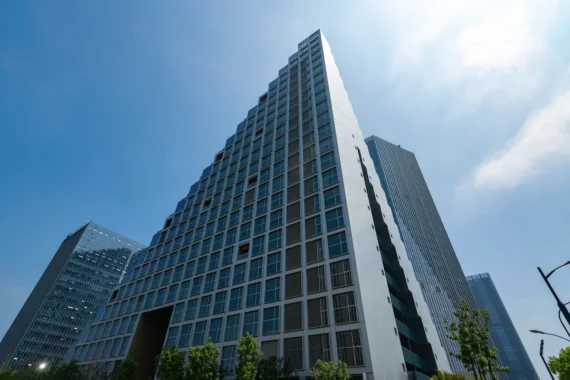
Finding companies in Japan that offer hybrid work requires appropriate information gathering and strategic approaches.
Using the following methods can significantly improve success rates.
Identifying and Applying to Foreign-Friendly Companies
Indicators of Foreign-Friendly Companies
Numerical Guidelines
- Foreign employee ratio in total workforce: 15% or higher
- Foreign employee ratio in engineering positions: 25% or higher
- Recent 3-year track record of hiring foreign new graduates: 5 or more annually
Evaluating Corporate Diversity Initiatives
- Multilingual recruitment pages (English, Chinese, Korean, etc.)
- Dedicated Diversity & Inclusion departments
- Clearly stated support systems for foreign employees
- Religious considerations (prayer rooms, halal food options, etc.)
Confirming Specifics of Hybrid Work Systems
Rather than simply “remote work possible” confirm the following details
- How many days per week of remote work are allowed
- Presence and frequency of mandatory office days
- Possibility of remote work from overseas
Utilizing English-Compatible Recruitment Agencies
Registration with Foreign-Specialized Agencies
- IT JOBs in Japan: Track record of supporting engineer job changes for 100+ people from 15 countries
- G talent: Also provides business English training
- Daijob.com: Database of approximately 40,000 people from 146 countries
Consider Combining with Major General Agencies
Using both foreign-specialized agencies and major general agencies (Recruit Agent, doda, Mynavi IT AGENT) provides both specialized support and abundant job options.
Key Points for Agency Utilization
- Communicate desired conditions specifically and in detail
- Accurately report technical skills and Japanese language level
- Share long-term career vision
Tips for Making Good Impressions in Remote Interviews
Thorough Technical Preparation
- Stable internet connection (wired recommended)
- High-quality video and audio equipment
- Appropriate lighting setup
- Clean, professional background
Cultural Consideration, Manners, and Communication
- Punctuality (log in 5 minutes before interview start)
- Appropriate attire (prepare full business attire)
- Proper use of honorific language
- Look directly at camera while speaking
Preparation for Common Questions Asked to Foreign Engineers
- “Why do you want to work in Japan?” → Explain specific reasons and long-term vision
- “Are you concerned about communication in Japanese?” → Show learning motivation and improvement plans
- “How will you ensure productivity in remote work?” → Present specific management methods
6. Success Stories: Foreign Engineers’ Hybrid Work Experiences

From the experiences of foreign engineers who have successfully implemented hybrid work in Japan, we can learn specific work patterns and success factors.
The following three case studies show individuals from different cultural backgrounds and challenges who have achieved ideal work-life balance through hybrid work.
American Engineer’s Tokyo × Silicon Valley Work Style
Mike Johnson (pseudonym), 32, Senior Software Engineer
Typical Weekly Schedule
- Monday & Thursday: Shinagawa office attendance (team meetings, design reviews)
- Tuesday, Wednesday & Friday: Home remote work (development work, Silicon Valley team coordination)
- Saturday morning: Weekly technical meeting with Silicon Valley headquarters
“8 PM Japan time is 4 AM Silicon Valley time. We conduct code reviews with the headquarters team at this time, sharing issues to align with their day’s start. Solutions are sent by the next morning, creating a continuous development cycle”
Keys to Success: Spending time with the Japanese team on office days for design consideration and creating prototypes with Silicon Valley’s pace on remote work days. This combination achieves both quality and speed.
Indian Developer’s Family Time Management Strategy
Priya Sharma (pseudonym), 28, Machine Learning Engineer
Securing Family Time
- Daily 6:30-7:30 AM: Breakfast video calls with parents in India
- Monday, Wednesday, Friday: Roppongi office attendance
- Tuesday, Thursday: Home remote work
- Sunday morning: Extended family online gatherings
“On remote work mornings, I meditate with my mother in India before starting my day. This allows me to maintain my cultural roots while focusing on work in Japan”
Balancing Cultural Identity: Using remote work days to maintain cultural practices including Hindu festival observances, Indian cooking, and reading technical books in Hindi.
European Manager’s Team Management Approach
Franz Müller (pseudonym), 35, Development Manager
Innovative Hybrid Team Management
Managing a multinational team (5 Japanese, 2 Indians, 1 Chinese-American, 1 German) with unique methods.
- Monday: All-hands weekly planning meeting with full attendance
- Tuesday & Wednesday: Individual choice free days
- Thursday: Team-wide remote work day
- Friday: Face-to-face code review and retrospective meetings
“The key is consciously creating time when all team members can participate under equal conditions. Thursday’s all-remote day eliminates disparities between office and remote groups”
Multicultural Team Management Points
- Pre-meeting document sharing for preparation time
- Conscious allocation of speaking time
- Sharing each member’s cultural background and values
- 24-hour development cycle using asynchronous communication
7. Future Outlook: Japan’s Market for Foreign Engineers

Japan’s IT market is expected to become an even more attractive option for foreign engineers in the future.
The convergence of three factors – serious talent shortage, technological innovation, and work style reform – creates significant opportunities for foreign engineers.
Rising Demand for Foreign Engineers Due to Digital Talent Shortage
According to Ministry of Economy, Trade and Industry surveys, Japan’s IT workforce shortage could reach approximately 800,000 by 2030. Currently, foreign IT professionals number about 58,000, representing about 5.6% of the total IT population, but this could reach 15-20% by 2030.
Expanding Opportunities in High-Demand Technical Fields
Fields expected to see rapid demand expansion
- AI and Machine Learning (25% annual growth rate)
- Cloud-native development
- Cybersecurity
- Data science
- Blockchain and Web3
Government Policy Support
As part of the “Digital Garden City Nation Initiative” policies including relaxed residence status conditions, revised highly skilled professional point system, and startup visa creation are being promoted.
References: Ministry of Economy, Trade and Industry: IT Human Resource Development Status
Global Remote Work Adoption and Japanese Corporate Response
The remote work culture established during the pandemic continues to evolve, entering an era of global remote work. This change creates new opportunities for foreign engineers.
Shift from “Come to Japan” to “Work Together Anywhere” Model.
Advanced companies like IBM Japan and Cybozu have begun initiatives including…
- Direct employment of overseas-based engineers
- 24-hour development systems across global time zones
Environmental Improvements Through Technological Advancement
Advances in metaverse, AR/VR technology, and AI translation further reduce physical distance and language barriers. Real-time AI translation improving simultaneous interpretation accuracy in meetings and immersive collaborative environments in virtual offices are becoming reality.
Strategic Asset for International Competitiveness
Foreign engineers directly contribute to improving Japanese companies’ international competitiveness. As global market competition intensifies, foreign engineers with diverse perspectives and technical capabilities become strategic assets for companies.
Future Vision of Japanese Companies Where Foreign Engineers Can Thrive
Looking toward 2030, the vision of Japanese companies where foreign engineers can truly thrive is becoming clear. This change involves fundamental transformation of corporate culture and business processes beyond mere diversity promotion.
Spread of Complete Merit-Based Corporate Culture
The shift from seniority-based to merit-based systems accelerates, creating fairer evaluation environments for foreign engineers.
- Evaluation systems based on technical capabilities and output
- Promotion opportunities regardless of nationality or cultural background
At companies where meritocracy is thoroughly implemented, it’s not uncommon for foreign engineers to be promoted to team leaders or managers within three years of joining.
Language Barrier-Free Workplace Environments
Advances in AI translation technology create workplaces where language barriers are virtually eliminated. Real-time multilingual meeting systems, automatic translation document management systems, and AI assistant-supported Japanese learning become standard equipment.
Establishment of Global Career Paths
System design progresses to make careers at Japanese companies valuable as global work experience.
Through support for international technical certification acquisition, overseas subsidiary training opportunities, and enhanced startup support systems, engineers can build globally recognized careers.
Some companies have begun providing incubation support for foreign engineers starting businesses in their home countries, aiming to build future business partnerships.
8. Hybrid Work Connects Japan’s IT Industry with Foreign Engineers
Hybrid work in Japan represents an ideal working style for foreign IT engineers, allowing them to leverage their technical skills while maintaining their cultural identity.
With serious talent shortages driving rapidly expanding demand for foreign engineers, now is the perfect opportunity.
Through appropriate company selection and strategic approaches, both career success in Japan and fulfilling work-life balance can be achieved.

















